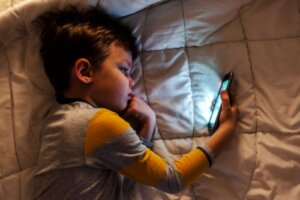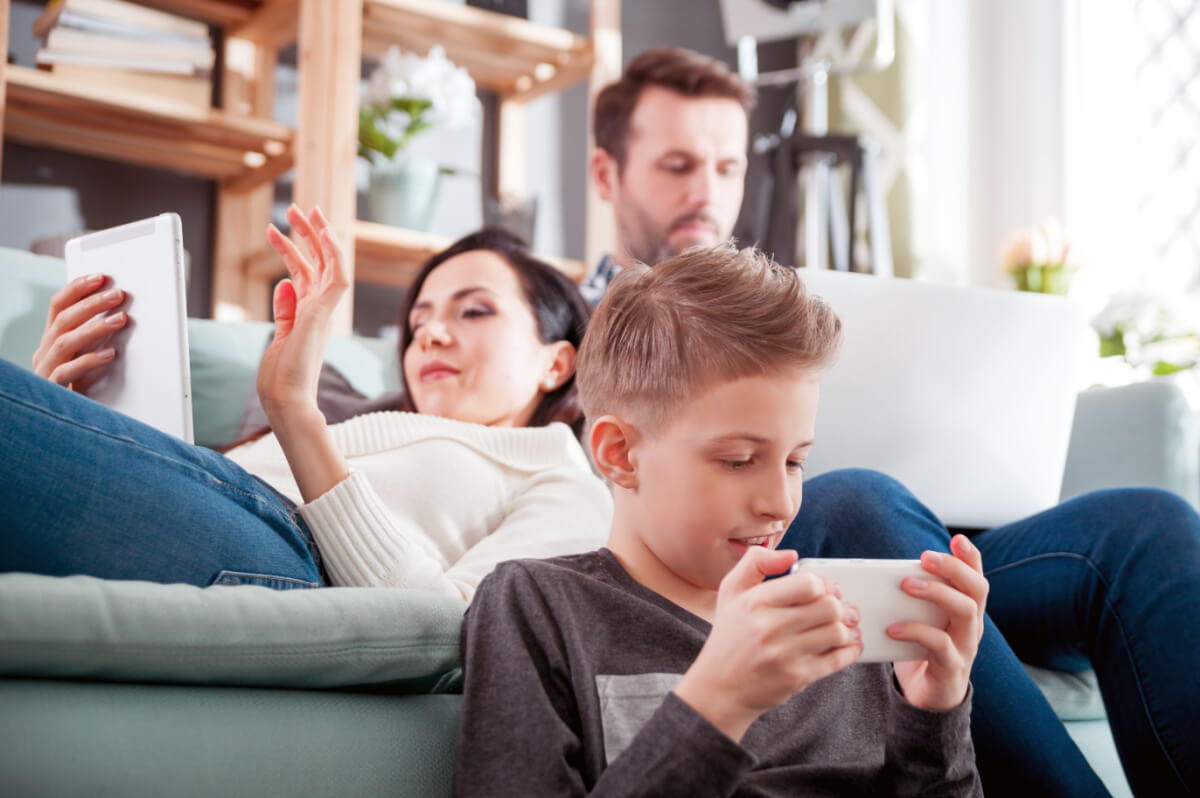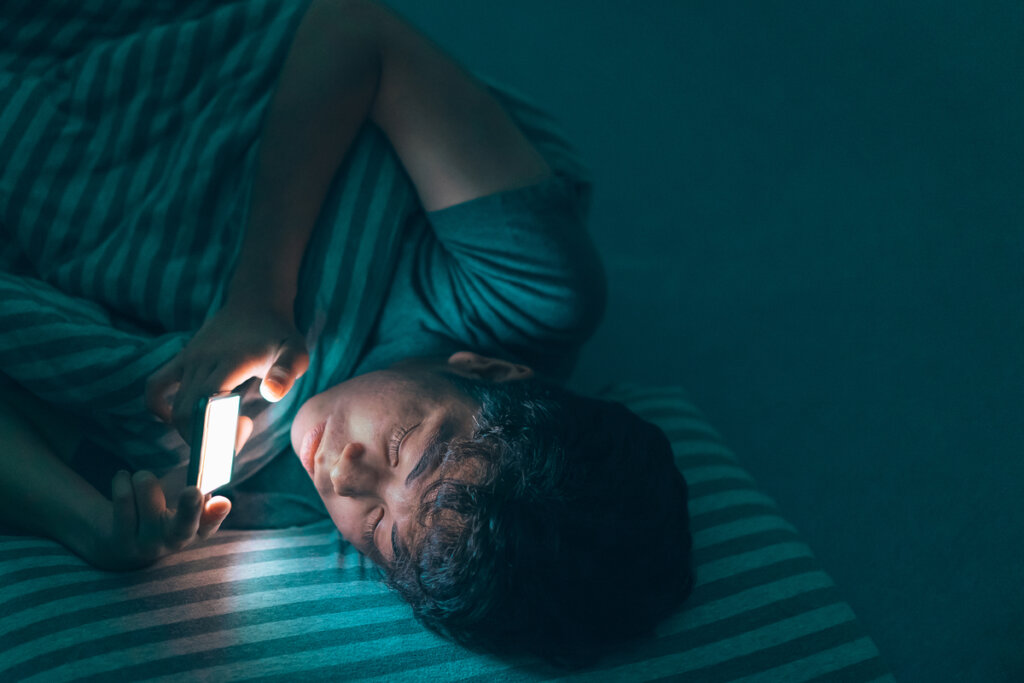The Link Between Screens and Intense Emotions


Written and verified by the psychologist Gorka Jiménez Pajares
We live in a hyperconnected society and a great deal of our social interactions occur through screens. In July 2022, a study investigated the relationship between screens and intense emotions. More than half of the participants stated that screens made them feel happier. However, what lies behind the relationship between screens and intense emotions?
This study was conducted by epantallados.com and GAD3, with the support of Por un Uso Love de Tecnología. The European Commission also participated. They investigated the impact of screens before and after the COVID-19 pandemic on adolescents and their parents. Its results were as follows:

- One in four young people has experienced concentration difficulties since using a screen.
- Three out of ten of them talk to their parents less.
- 23 percent agree that they have less patience.
- 22 percent have lost interest in everything.
- 18 percent state that the screens have reduced their ability to exert themselves.
- 26 percent have experienced increased sleep problems.
- 13 percent feel sadder. Moreover, they don’t know why.
“The cell phone is still the most used digital device in the home. In fact, two out of three adolescents (68 percent) use their cell phones more than before the start of the pandemic, only four percent more than their parents (64 percent)”.
-General Council of Psychology of Spain-
A total of 824 people participated in this study. The participants were parents and their adolescent children between 14 and 17 years of age.
“Faced with the possibility of being deprived of their cell phones, three out of ten adolescents say that without a cell phone for two full days, they would get nervous; one in four minors indicates that, without a cell phone, they would not know what to do; and 21 percent of adolescents believe they would feel lonely.”
-GAD3-

Impaired emotional health
This study confirms that the use of screens directly affects the emotional health and behavior of adolescents. The effects are as follows:
- Lack of ability to concentrate. One in four young people (28 percent) acknowledges that it’s been more difficult for them to concentrate since using screens. Almost the same proportion of parents agree with this perception: (27 percent).
- Lack of ability to converse. Almost three out of ten minors (28 percent) admit that, since they’ve been using screens, they talk less with their parents. Moreover, 22 percent of parents think they talk less with their children.
- Lack of patience. Google takes less than a second to tell us what we want to know. This teaches adolescents that they can learn anything, right now. Accordingly, 23 percent affirm that they have less patience since they’ve been using screens. This figure rises to 28 percent in the case of their parent’s perception.
- A lack of interest in other things. Screens cause 22 percent of minors to lose interest in other things. Video games, tv series, and social media become a refuge for them. In fact, 28 percent of parents claim their children have lost interest in things.
- Lack of willpower. Real-life demands don’t get as quick a response as Google. So, why should they even try to climb that mountain or jump over that bar? It seems that 20 percent of adolescents recognize that screens don’t stimulate their ability to exert themselves.
- Disturbed sleep. 26 percent of teens say they have a harder time sleeping, and they admit that screens play a part. Indeed, the activation that they generate in the brain before bedtime doesn’t favor sleep. This is because the suprachiasmatic nucleus isn’t capable of producing as much melatonin as they need to sleep. The result: insomnia.
- Change in character. Sleep is important both for adults and adolescents. Consequently, a bad night’s sleep can translate into changes in character and behavior. As you know, getting angry and upset over things that shouldn’t arouse such emotions is far more likely when you’re sleepy. Hardly surprising then that a lack of sleep makes teens more irritable.
- Feelings of discomfort. 13 percent of adolescents claim they’re less adept at managing their negatively valenced emotions, especially frustration since they’ve been using screens.
“Screens are a source of intense emotions for adolescents. More than half affirm that the screens help them a lot to be happy. For 48 percent, they help them escape from their daily reality. For 43 percent they produce a roller coaster of emotions.”
– General Council of Psychology of Spain-
As a consequence of the result of this study, the authors stress the need to work and teach adolescents strategies to deal effectively with the management of their emotions. In addition, they should be provided with tools so that feelings of security grow within them.
All cited sources were thoroughly reviewed by our team to ensure their quality, reliability, currency, and validity. The bibliography of this article was considered reliable and of academic or scientific accuracy.
- Empantallados y GAD3 (2021). “El impacto de las pantallas en la vida familiar. Familias y adolescentes tras el confinamiento: nuevos retos educativos y oportunidades”.
- Lara Álcantara, G. E. (2021). Exposición de infantes a pantallas. Disminuir u orientar.
- Poza, J., Pujo, M., Ortaga, J., & Romero, O., (2018). Melatonina en los trastornos de sueño. Revista Neurología. https://www.elsevier.es/es-revista-neurologia-295-avance-resumen-melatonina-los-trastornos-sueno-S0213485318302007#:~:text=La%20s%C3%ADntesis%20y%20la%20secreci%C3%B3n,marcador%20de%20los%20ritmos%20circadianos.
This text is provided for informational purposes only and does not replace consultation with a professional. If in doubt, consult your specialist.








